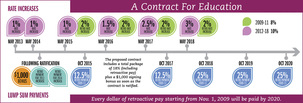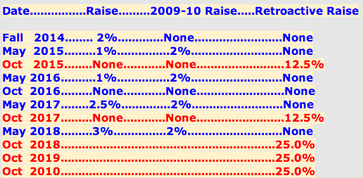In the meantime, the School District of Philadelphia has been overwhelmed by issues. Two student deaths this year and their relation to the lack of proper nursing staff in buildings across the city. For the first time in years I never have to tell my students that "the nurse is not in the building today" since we have full-time staff at my current school. It is unfortunate that schools in Philadelphia have come to this yet I am not surprised in the slightest.
And, today, perhaps a strong step forward by the School Reform Commission (SRC) - they will not approve the Doomsday II budget for next year, citing the lack of resources as not enough to properly have a school system in the city. In the meantime, the last remnants of the Recovery District in New Orleans has petered out (not all public schools are closed - six still remain). Some, like Dr. James Lytle, are pondering the similarities of what is happening in Philadelphia. Will I have to watch as my first school district falls to pieces, only to be chopped up by the large charter networks? I certainly hope not.
It is truly unfortunate when public systems are underfunded for years and then blamed for their own poor performance. I hope the School Reform Commission finally teams up with the local Union leadership and Administration to lobby the state government for a fair funding formula.




 RSS Feed
RSS Feed
